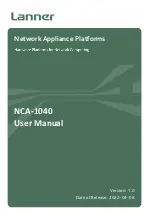
Errata
22
Specification Update
AZ2.
INVLPG Operation for Large (2M/4M) Pages May Be Incomplete under
Certain Conditions
Problem:
The INVLPG instruction may not completely invalidate Translation Look-aside Buffer
(TLB) entries for large pages (2M/4M) when both of the following conditions exist:
“Address range of the page being invalidated spans several Memory Type Range
Registers (MTRRs) with different memory types specified “INVLPG operation is
preceded by a Page Assist Event (Page Fault (#PF) or an access that results in either A
or D bits being set in a Page Table Entry (PTE))
Implication:
Stale translations may remain valid in TLB after a PTE update resulting in unpredictable
system behavior. Intel has not observed this erratum with any commercially available
software.
Workaround:
Software should ensure that the memory type specified in the MTRRs is the same for the
entire address range of the large page.
Status:
For the steppings affected, see the Summary Tables of Changes.
AZ3.
Store to WT Memory Data May be Seen in Wrong Order by Two,
Subsequent Loads
Problem:
When data of Store to WT memory is used by two, subsequent loads of one thread, and
another thread performs cacheable write to the same address, the first load may get the
data from external memory or L2 written by another core, while the second load will get
the data straight from the WT Store.
Implication:
Software that uses WB to WT memory aliasing may violate proper store ordering.
Workaround:
Do not use WB to WT aliasing.
Status:
For the steppings affected, see the Summary Tables of Changes.
AZ4.
Non-Temporal Data Store May Be Observed in Wrong Program Order
Problem:
When non-temporal data is accessed by multiple read operations in one thread while
another thread performs a cacheable write operation to the same address, the data
stored may be observed in wrong program order (i.e., later load operations may read
older data).
Implication:
Software that uses non-temporal data without proper serialization before accessing the
non-temporal data may observe data in wrong program order.
Workaround:
Software that conforms to the
Intel® 64 and IA-32 Architectures Software Developer's
Manual, Volume 3A,
“Buffering of Write Combining Memory Locations” section will
operate correctly.
Status:
For the steppings affected, see the Summary Tables of Changes.
















































